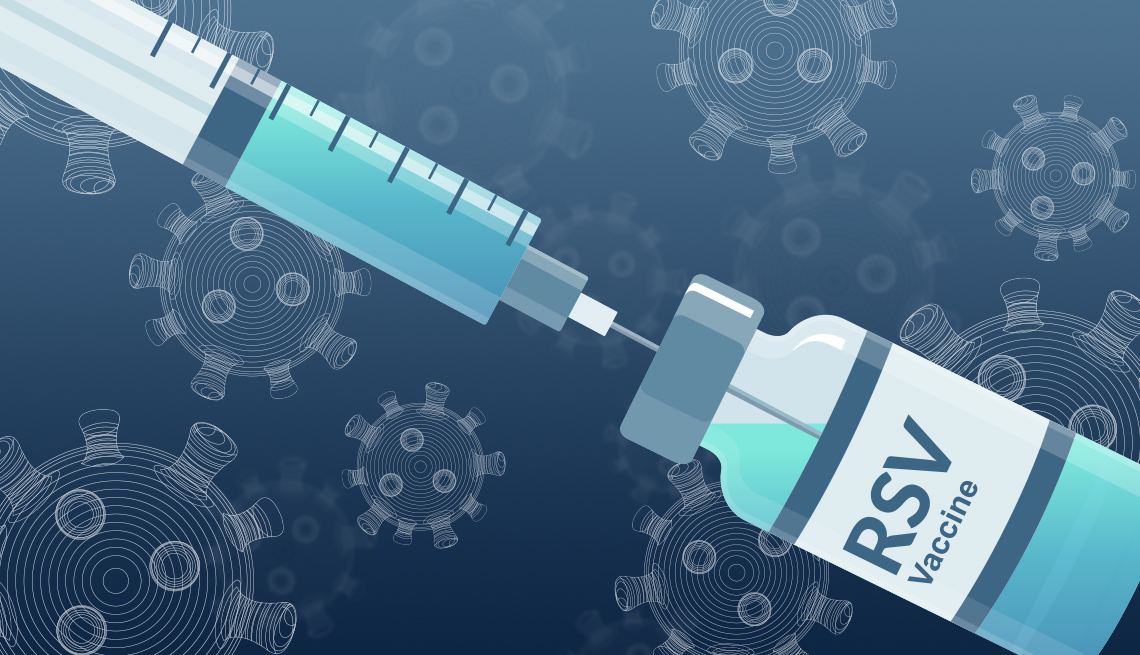
Why are so few older adults getting the rsv vaccine?
- Select a language for the TTS:
- UK English Female
- UK English Male
- US English Female
- US English Male
- Australian Female
- Australian Male
- Language selected: (auto detect) - EN
Play all audios:

“All adults over the age of 60 should really be talking to their provider about whether they should get the vaccine,” Marston says. If you’re under 60 and have risk factors for severe RSV,
your doctor may choose to give you a vaccine “off-label.” However, it’s important to note that the data for this age group has not been reviewed by the FDA, Schaffner says. And because the
shot hasn’t been approved for this age group, your insurance likely won’t cover it. Another consideration: If you spend a lot of time around children, you may want a vaccine to help
protect yourself and the youngsters in your life, says Michelle Prickett, M.D., associate professor of medicine in pulmonary and critical care at Northwestern University Feinberg School of
Medicine. WHAT ABOUT SIDE EFFECTS OF RSV VACCINES? Both of the approved RSV vaccines were found to be “very effective in preventing illness,” Prickett says, which could mean less time
spent sneezing, wheezing and feeling miserable. Arexvy, the single-dose RSV vaccine from drugmaker GSK, was 82.6 percent effective against lower respiratory tract disease (coughing,
wheezing, shortness of breath) in the first season; while Abrysvo, the single-dose RSV vaccine from Pfizer, was nearly 89 percent effective. When it comes to side effects, RSV vaccine is
similar to other respiratory virus vaccines, Prickett says. “[It can cause] some minor pain, swelling in the injection site, maybe a little bit of fever, but it’s been very well-tolerated,”
she says. In the clinical trials testing Arexvy, 61 percent of study participants reported pain at the injection site; 34 percent reported fatigue; 29 percent reported muscle aches; and 27
percent reported a headache. The most common side effects among trial participants who received Abrysvo were fatigue (16 percent), headache (13 percent) and pain at the injection site (11
percent). A small number of clinical trial participants (six out of more than 38,100) who received the vaccine experienced neuroinflammatory reactions such as Guillain-Barre syndrome, a
rare disorder that can lead to weakness or even temporary paralysis. A handful of cases of atrial fibrillation, or an irregular heart rhythm, were also reported. Researchers are conducting
additional safety studies to determine whether the vaccines triggered these reactions or if they occurred at random, the CDC says. In the meantime, Prickett says people who have had
neuroinflammatory reactions to other vaccines should talk to their doctor and weigh the risks and benefits of RSV vaccines. “In most patients, though, that’s probably less of a concern,” she
adds. WHEN SHOULD YOU GET THE RSV VACCINE? It’s not too late to get the RSV vaccine, Schaffner says. “But don’t linger.” The same advice goes for this year’s flu and COVID-19 vaccines.
Though RSV’s winter peak is receding, respiratory illness activity remains elevated across the U.S., the CDC reports, and surveillance data shows that it’s not uncommon to experience a
smaller spring resurgence of RSV. You can get the RSV vaccine at the same time as your flu shot and COVID-19 vaccine; however, if you prefer to space it out from the other two, that’s fine.
Studies suggest that you may experience more of the common side effects if you get your flu shot alongside an RSV vaccine. It’s also possible that RSV and flu vaccines won’t produce as
strong of an immune response when given together, though more research is needed. “It’s really your preference in terms of convenience,” CDC Director Mandy Cohen, M.D., said at a briefing
with the National Foundation for Infectious Diseases. Video: Is It Safe to Get Three Vaccines at Once? _Editor’s note: This story, first published Oct. 2, 2023, has been updated to include
new information._
